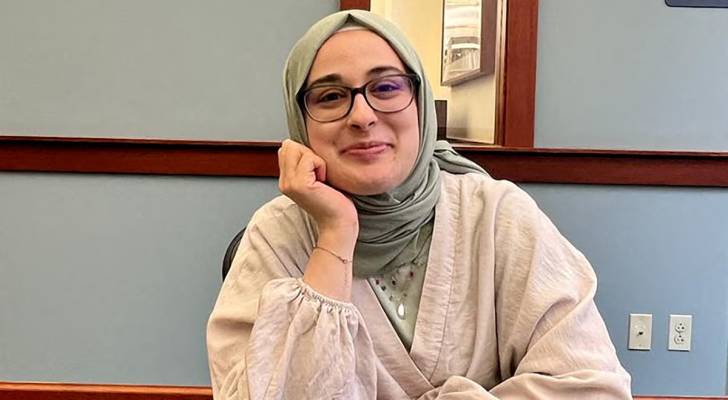Rumeysa Ozturk, a Turkish doctoral student at Tufts University, who had been detained by US Immigration and Customs Enforcement (ICE)
Tufts Turkish student released after six weeks in ICE detention
US District Judge William K. Sessions III ordered on May, 9 the immediate release of Rumeysa Ozturk, a Turkish doctoral student at Tufts University, who had been detained by US Immigration and Customs Enforcement (ICE) for over six weeks.
The decision marks a setback for the Trump administration’s aggressive immigration crackdown targeting noncitizen activists, particularly those accused of antisemitism or supporting pro-Palestinian causes.
Ozturk, 30, was apprehended by masked, plainclothes ICE agents on March 25, 2025, while walking to an Iftar dinner in Somerville, Massachusetts, to break her Ramadan fast.
Surveillance footage of the arrest, which went viral, showed agents surrounding her, seizing her phone and backpack, and placing her in an unmarked vehicle. Her student visa had been quietly revoked days earlier, and she was swiftly transferred through New Hampshire and Vermont before being flown to an ICE detention center in Basile, Louisiana, where she was held in an overcrowded cell.
The government’s case against Ozturk hinged on a 2024 op-ed she co-authored in The Tufts Daily, criticizing Tufts University’s response to student demands to acknowledge the “Palestinian genocide” and divest from companies tied to Israel.
The Department of Homeland Security (DHS) accused her of engaging in activities supporting Hamas but provided no evidence beyond the op-ed. Ozturk’s legal team, led by attorneys Mahsa Khanbabai and Ramzi Kassem, argued that her detention was an unconstitutional retaliation for exercising her First Amendment right to free speech.
Judge Sessions, in his ruling, expressed severe doubts about the constitutionality of Ozturk’s detention, stating there was “no evidence” against her beyond the op-ed.
He warned that her detention could “chill the speech of millions and millions” of noncitizens. The judge also cited due process violations and health risks, noting Ozturk’s chronic asthma, which worsened in detention, leading to multiple asthma attacks.
During the bail hearing, Ozturk testified via Zoom from the Louisiana facility, describing overcrowded conditions and her deteriorating health.
The ruling allows Ozturk to return to her home in Somerville without travel restrictions, though her deportation case remains active in immigration court. Her release follows a series of legal battles, including a denied bond request in April by a Louisiana immigration judge, who deemed her a “flight risk” and “danger to the community” based on a one-paragraph State Department memo.
Ozturk’s attorneys condemned the detention as a deliberate attempt to silence advocates for Palestinian rights, pointing to a broader pattern of visa revocations targeting hundreds of international students.
The Turkish embassy closely monitored the case, advocating for Ozturk’s release, while Tufts University President Sunil Kumar praised her research and affirmed her good immigration standing prior to the visa revocation.
Protests in Boston and on Tufts’ campus demanded her freedom, reflecting widespread criticism of the administration’s tactics.
Ozturk’s release is the latest legal blow to the Trump administration’s immigration policies, following a similar ruling for a Palestinian Columbia University student. “We are relieved and ecstatic,” Khanbabai said, though she noted the detention lasted “45 days too long” for what was “simply writing an op-ed that called for human rights and dignity.”




